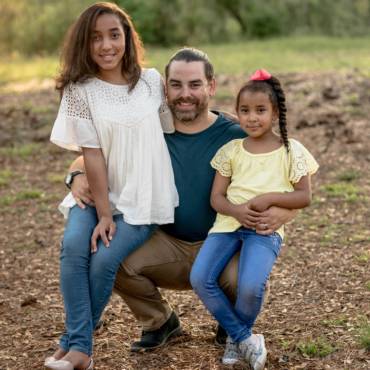You are your child’s first example of a teacher and that means you need to model the type of behavior that will set the best example. When I connect with parents, some of them tell me, “I do not think that the teacher likes my child” and that they believe there is unfair treatment going on in the classroom.
Put your focus back on your child
It is important that your child feels supported and that begins with a daily check- in. Implementing a ten-minute check-in after school can be informative. The discussion does not have to focus entirely on school, maybe talk about a topic that is of interest to them and allow them to find new ways to celebrate positive accomplishments. This casual conversation invites your child to speak about things that are on their mind and gauge if what you are feeling about the teacher is realistic or even something they notice. “If a teacher has to worry about being defensive it can distract from dealing with the issues of the child. When the teacher looks at the child, we only want the teacher to think about the child and not the issue they are facing with a parent, Gary Direnfeld MSW, RSW a Social Worker in private practice, and advocate for the well-being of children and families-explains.
Self-reflection
Consider whether you are being objective about these concerns by asking yourself the following questions: How did I come to this conclusion? What am I most concerned about? What would I like to see happen? Who else can I talk to about this concern?
Develop A Positive Relationship
It is important for a parent to develop a positive relationship with their child’s teacher and if there is reason to be concerned – you want to reach out to the teacher when your emotions are not at its peak. Write down what you want to say and try to steer the conversation away from assumptions, spiteful comments and most of all aggression. Do not allow your children to overhear you speaking negatively about their teacher this will only cause a greater rift in their relationship – if there is one – and may lead to confusion.
Setting Up A Meeting
Send the teacher a note requesting a meeting and use this time to get to know them. This requires that you have an open mind, in fact, you might be surprised about what you uncover. Go prepared; you should rehearse some possible topics of discussion. Talk about possible activities or subject areas that your child might be struggling with, along with activities that best suit their learning styles. You can also spend some time talking about your child`s personality type and their hobbies as this is an area where you both have a vested interest.
Stay Open-Minded
“Have some empathy for teachers they are dealing with many more children in the classroom, children whom represent a diversity of cultures and a diversity of learning needs,” Gary Direnfeld MSW, RSW -says. So, when they flag an issue one has to go towards it with the sense that the teacher is not out to hurt my child, we are aligned our interests are the same, we want a good outcome for this young student. The degree to which the parent can approach the teacher with that frame of reference, will help the teacher maintain an open mind towards us.”
Allow for enough time for feedback from your child`s teacher. If you decide to bring up your concern, they might be very surprised about your assessment. As a supportive parent, this is a great time for the two of you to bridge the gap. Even if you still sense some animosity, this is your chance to say, “let’s start over, I want to make sure my child has the best learning experience possible and it is important we work together to make it happen.” We all have personality types that we get along better with, so do not allow that to stand in the way of your child’s progress.
Cooperation is Key
Working together with your child’s teacher is one of the greatest gifts you can provide to your child and one that most teachers welcome when communicated clearly. Try not to take interactions with your child’s teacher personally, it might have very little to do with you. Instead, try and remain focused on issues that have to do with your child. Don’t feel like you must do it alone, bring a partner, friend or even a professional to the meeting. They might provide you with an objective glance. Whatever the situation, try to seek the help you need and make use of all the resources available to you at your child’s school – even if that means speaking with the principal or guidance counselor. Remember, the goal is to make sure you, the teacher and your child are working together for a successful school year.
Carole Sandy is a couple and family therapist who helps families and individuals resolve personal issues. She supports families and individuals by helping them create healthy relationships, healthy work-life balances while offering hope in the face of difficult circumstances.





Add Comment